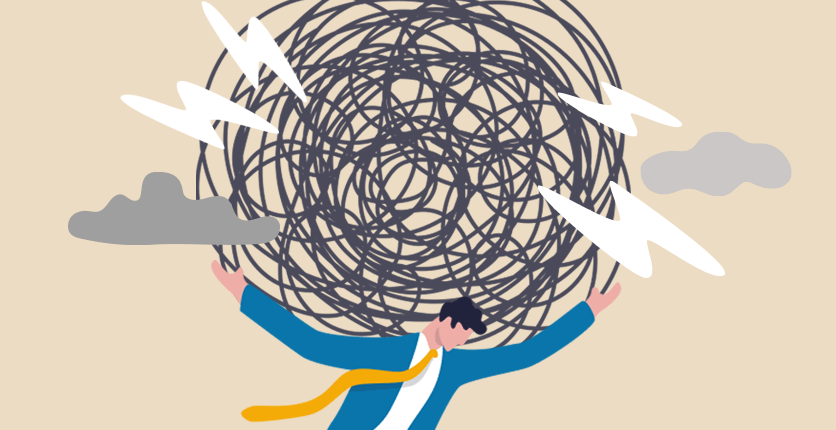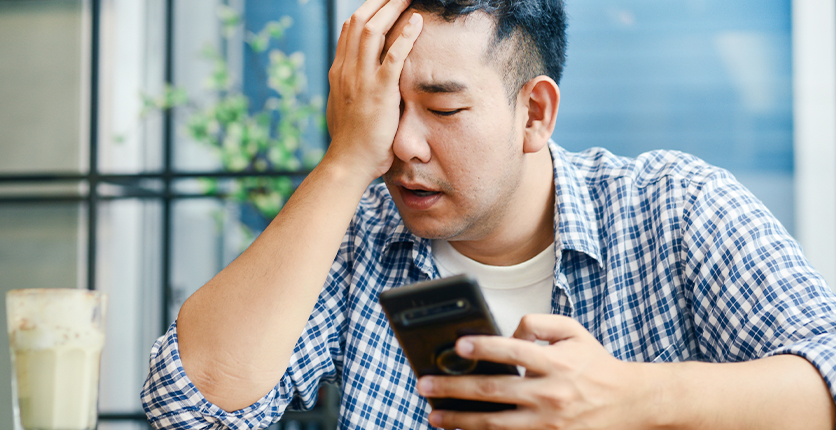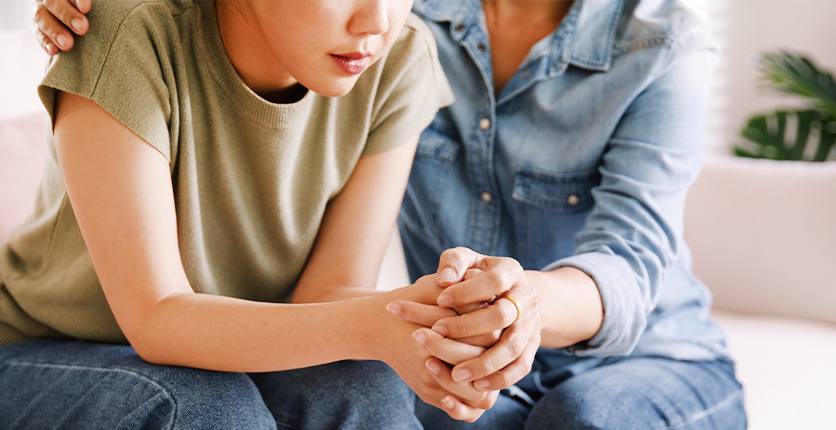In the last couple of years since the pandemic was declared, anxiety has been at the forefront of the news. According to the Ministry of Health, anxiety disorders are the most common of all the mental disorders, and in Singapore, it’s estimated that about 10 per cent of people are affected by some form of anxiety disorder.
What is anxiety?

Anxiety is more than just feeling worried or stressed. The emotion is characterised by feelings of tension, worried thoughts, and physical changes, such as fatigue and a rise in blood pressure.
It’s normal to feel tense, anxious, worried or stressed on occasion, for example, right before a job interview or an exam, but when these feelings become all-consuming and start to interfere with your daily life, affecting your ability to eat, sleep, go to work or maintain your relationships, then you may be described as having an anxiety disorder.
Signs of anxiety disorder

Anxiety is often self-diagnosable. The main signs include:
- Excessive and uncontrollable worry, anxiety or fear
- Feeling of impending danger, panic or doom
- Feeling tense or nervous
- Increased heart rate, heart palpitations
- Sweating
- Trembling
- Irritability or restlessness
- Feeling weak or tired
- An unrealistic view of problems
- Avoiding situations, activities and tasks that make you feel overwhelmed or anxious
- Difficulty concentrating
- Nausea
Anxiety disorder can be mild, moderate or severe. Mild anxiety may be unsettling at most, but severe anxiety usually affects your day-to-day living and you may find the emotions difficult to shake off.
Some people are more vulnerable to developing an anxiety disorder:
- Those with a family history of anxiety or mood disorders
- Those who are hypercritical of themselves, who have trouble dealing with criticism or who are prone to negative thoughts
- Those who have experienced a stressful life event, such as an accident or the sudden death of a loved one; or who have been through a traumatic experience, such as physical, emotional or sexual abuse
- Those who use or consume caffeine, alcohol and/or nicotine in excess
There may also be biological risk factors. The brain has chemicals called neurotransmitters that send messages from one cell to another. These neurotransmitters, in particular serotonin and dopamine, can affect the way we feel. Disruptions in this messaging process are said to be linked to anxiety disorder.
Managing anxiety

Untreated anxiety disorder may lead to other mental health disorders such as depression. If you ignore your symptoms of anxiety, you may also be more susceptible to suicide or self-harm behaviours.
Anxiety disorder is a complex and chronic condition that takes many forms. There is no cure for it, but the good news is that it can be brought under control and managed, even over the long term.
Besides getting professional help – your doctor may recommend counselling and/or medication to help with the symptoms – you may benefit from adopting some new lifestyle habits:
Practise mindfulness
When you find yourself caught up in anxiety-triggering thoughts, close your eyes, pause for a minute, and try to quieten your mind. Focus on bringing your thoughts back to the present moment and remind yourself that the future is out of your control and that you’re doing the best you can. Incorporating relaxation techniques, such as meditation or breathing exercises, can also help calm and refocus your mind.
Find out how TCM can help relieve some symptoms of anxiety, or take some time out for self-care.
Live a healthier lifestyle
Eating regular, wholesome and nutrient-dense meals, getting sufficient quality sleep every night, exercising at least thrice a week, avoiding nicotine and caffeine, and keeping stress under control, all go a long way towards helping you reduce anxiety.
Identify your triggers
Learn what situations stress you out or increase your anxiety and talk to a mental health professional or your doctor about how to manage these anxious feelings when you’re in these situations.
Stay socially connected
Spending quality time with family and friends can help you relax and take your mind off your worries and fears. Discussing your concerns with your loved ones is also a good way to offload any intrusive thoughts; they may even give you better solutions to managing your anxiety.
Note: Please consult your doctor if you think you may have anxiety disorder before starting on a treatment plan.
For references and more information, please go to:
Anxiety disorders
What is Anxiety and How to Deal with Anxiety Effectively
Anxiety in Singapore: Stats, Types and Who’s at Risk
Anxiety Disorder or Just Anxious?
Managing and treating anxiety
Want more articles like this, and other lifestyle content right in your inbox? Sign up for the eNSman Newsletter – you don’t need to be a SAFRA member to subscribe – and never miss another story!







